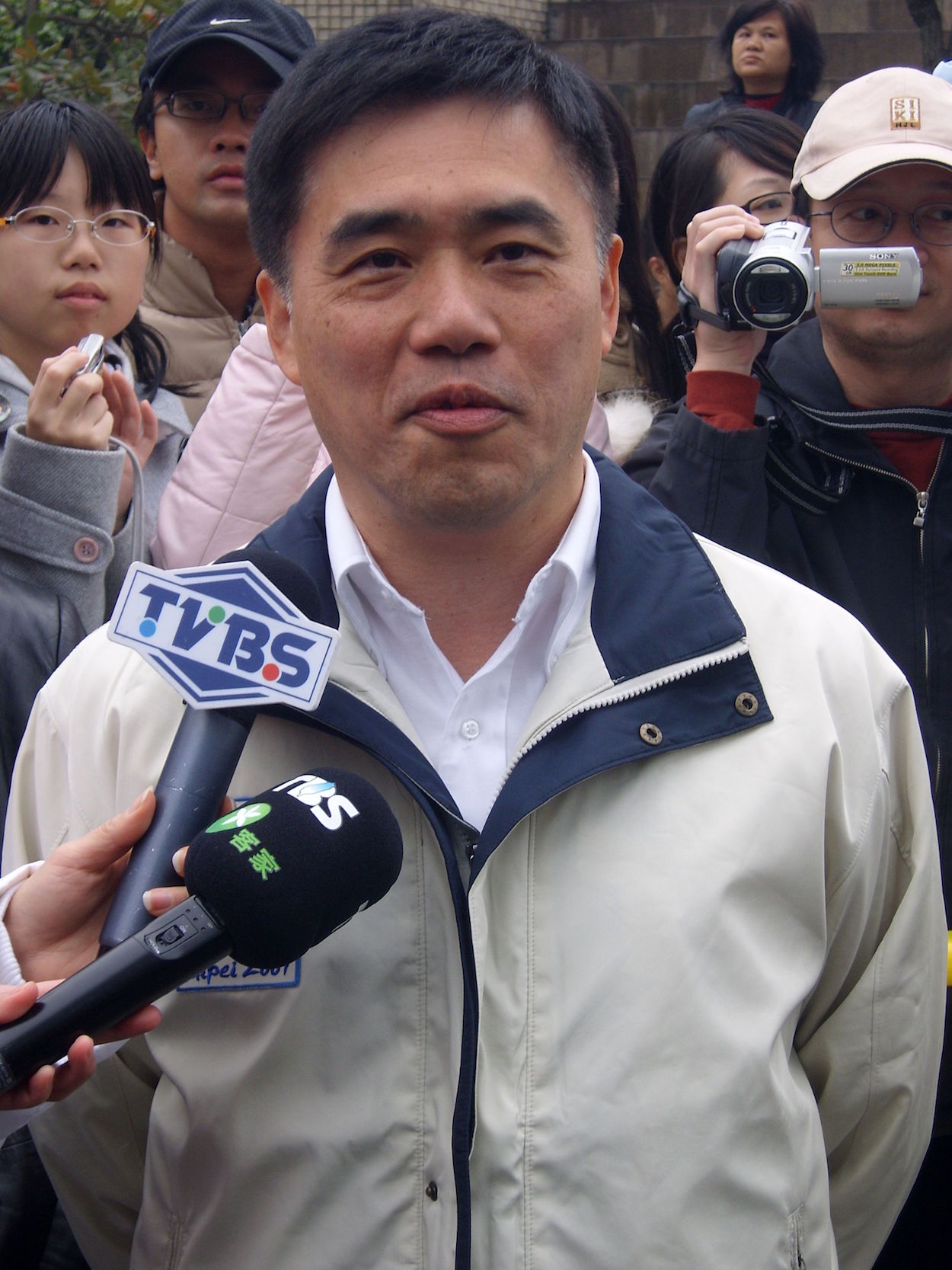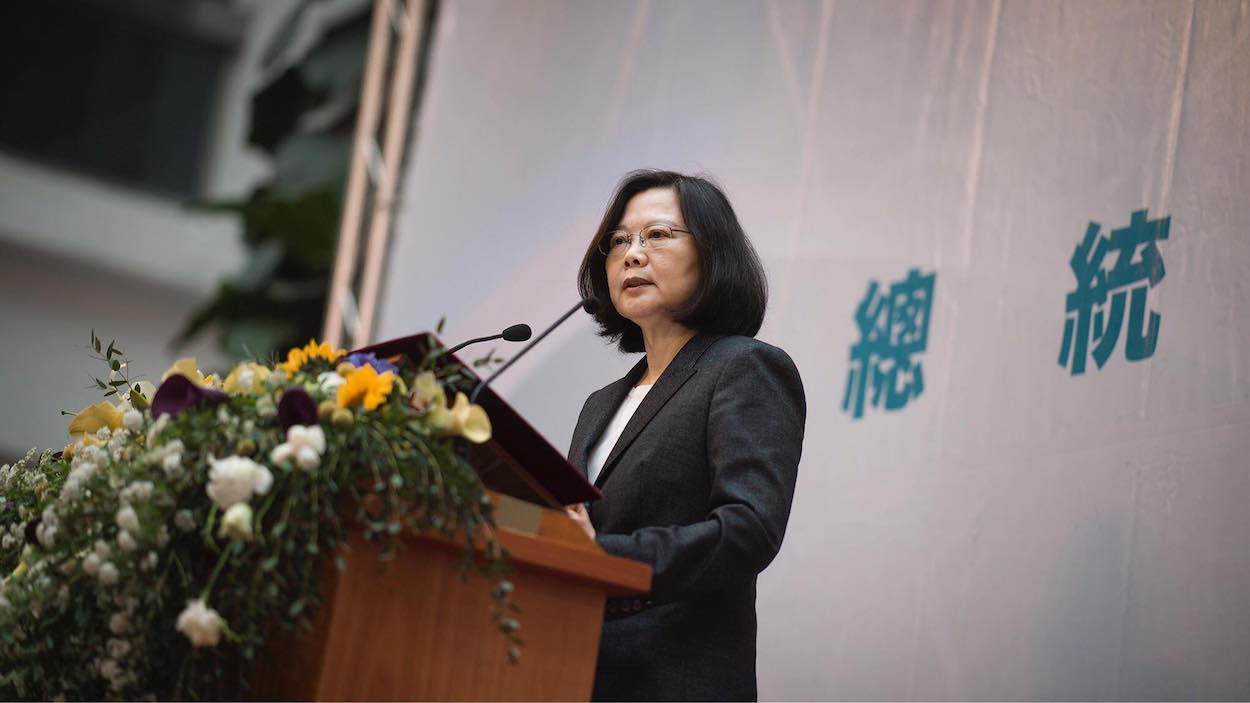by Brian Hioe
語言:
English
Photo Credit: VOA
RECENT COMMENTS by Hau Lung-Pin, a KMT party heavyweight and a major contender in the upcoming race for party chair, illustrate how the KMT has largely failed to reckon with its authoritarian past. Namely, in recent comments at a conference in Hsinchu on the KMT’s future, Hau claims that the DPP is currently subjecting the KMT to a “Green Terror” and that this “Green Terror” far surpasses the KMT’s “White Terror” in scale. Hau also criticized the DPP for allowing American pork imports into Taiwan, due to concerns about American pork being treated with the growth hormone ractopamine, and Japanese food imports from provinces affected by radiation from the 2011 Fukushima incident, issues which the KMT has recently latched onto as a way to target the DPP.
The KMT is currently smarting from the DPP’s probe into its illegal party assets, dating to property seizures made by the KMT after the end of the Japanese colonial period. It has often been suggested that the KMT’s party assets make the KMT one of the world’s richest political parties. But the KMT’s refusal to clarify the extent of its assets makes the task of measuring the KMT’’s total assets a difficult one. The party assets issue is one which hangs over the KMT, seeing as they are a major factor contributing to the party’s reputation as being involved in a number of shady business dealings, lacking transparency, and unaccountable to the Taiwanese public.
 Hau Lung-Bin. Photo credit: Rico Shen
Hau Lung-Bin. Photo credit: Rico Shen
However, the KMT is internally divided on the issue of party assets. Some within the KMT see purging party assets as a way to regain the trust of the Taiwanese public, given the major defeat handed to the KMT in 2016 presidential and legislative elections. Others want to retain party assets, seeing party assets as an invaluable legacy of past generations of the KMT which the present generation cannot abandon. Still others who call for retaining KMT party assets, more cynically, simply wish for a piece of the pie when it comes to the KMT’s vast wealth. Either way, many members of the KMT broadly perceive the DPP as engaged in a campaign of political persecution because of the fact that the KMT is currently being called to task by the DPP-led government not only for its illegal party assets, but also for its past crimes during the authoritarian period.
In all probability, the DPP will not push too hard in calling KMT political actors to task for past crimes that they may have committed during the authoritarian period. Many individuals who committed crimes during the authoritarian period were allowed to go free due and to persecute them now has the potential unsettle Taiwan’s stable democratic system. This largely seems to have been the price that Taiwan paid in order to have a transition to democracy more peaceful than it otherwise would have been, with the KMT allowed to continue operating as a political party despite its role as part of the party-state apparatus and its past actions during the authoritarian period. As such, the DPP has mostly stuck to calling for investigating the culprits of the 1947 228 Massacre, rather than the White Terror more broadly. Most culprits of the 228 Massacre are dead, whereas many of the perpetrators of the White Terror in the decades that followed are still alive.
 Tsai Ing-Wen. Photo credit: Tsai Ing-Wen Facebook
Tsai Ing-Wen. Photo credit: Tsai Ing-Wen Facebook
However, the KMT not only perceives the actions of the DPP as unfairly targeting it on the issue of party assets, but despite the KMT’s much vaunted claim that it was an active participant in the process of democratization which willingly relinquished power, members of the KMT such as Hau and others continue to see the past actions of the KMT in a rosy light. The 228 Massacre is, for example, perceived as an unfortunate event which occurred the chaos of the KMT’s coming to Taiwan, but they perceive the event as small in scale. And the KMT’s actions during the White Terror are thought of as aimed at minimizing social chaos and reinforcing national security, rather than aimed at consolidating Chiang Kai-Shek’s dictatorial rule. While such actions are seen as having gone overboard at times, the KMT continue to think of its actions as mostly justified, and done with the best interests of the Republic of China in mind.
So, then, we can understand such ludicrous statements as Hau’s that the DPP’s “Green Terror” surpasses the “White Terror” in scale. However, in the year since the Tsai administration took office, where are the tens of thousands of killed political dissidents? The KMT’s inability to confront its own bloody past and its distortion of history for the sake of its own interest is not something that has changed in the past decades of Taiwan’s democratization and this is no different. And with similar statements from party heavyweights such as Hau Lung-Pin or Hung Hsiu-Chu across the board, we can observe quite clearly how the KMT party leadership understands its party history and the history of Taiwan more broadly.

